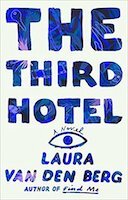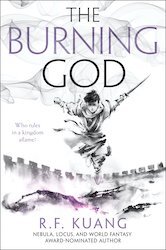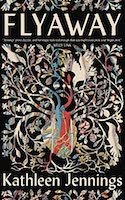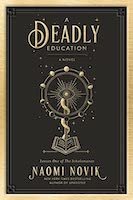Review: The Third Hotel
/3 stars. This is a really weird book, and while I typically like weird, I am ... confused. I'm almost ashamed to admit that I Just Didn't Get It, because it checks a lot of boxes for me: ambiguous, atmospheric, with a lot of meta-writing about horror, death, and marriage.
I feel like I keep coming across a certain writing style that's hyper-deliberate in its weirdness, shooting beyond uncanny into a straight dreamworld that leaves me, personally, as a reader, too disoriented to appreciate it. Like, not thought-provoking, just thought-scrambling. I totally get that in some or many cases, that's the point. But if that's the point of The Third Hotel (and Luster, and Fates of Furies, etc.), I'm not satisfied, nor did I enjoy the experience. Sorry.
What a premise, though! The Third Hotel tracks a recently-widowed young woman as she travels to Havana, Cuba to attend a film festival in her husband's place. The narrative glides and snakes between the present and the past as she comes to terms with the truth about her marriage and the truth about her future, a mental de- and re-construction that takes place in one of the sweatiest, most interesting places on Earth. Her dead husband wavers in and out of focus as she wanders, pretends, and grieves, ending with a lot of unanswered questions and only a vague idea of what comes next.
My favorite thing about this book is the way the author explores Big Themes: sense of self, expectations vs reality, marriage, life, death, loss, loneliness. There are some whopping quotes that really resonate (“The two impulses cannot be separated. The desire to have a life and the desire to disappear from it. The world is unlivable and yet we live in it every day.”) and some fascinating exposition on the psychology behind horror films. But even that stuff is a bit lost in the jungle of Clare's very strange journey. The imagery is so strong but just too damn feverish for me. Again, sorry.
What did I miss?! Tell me! I love that this book exists even if I don’t love it directly. Laura Van Den Berg is obviously very talented and I look forward to following her as a writer. I have a feeling that, despite my rating and grumpiness about it all, this book might end up haunting me after all.
The Third Hotel on: Amazon | Bookshop.org | Goodreads










